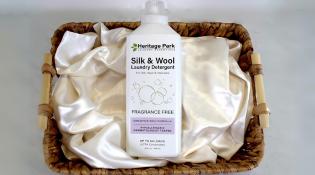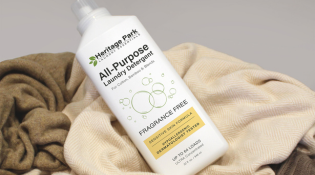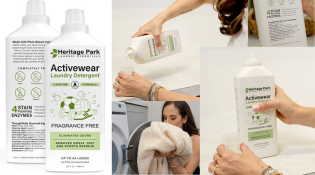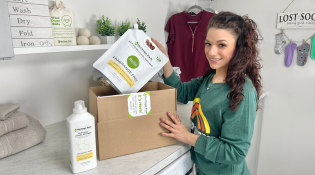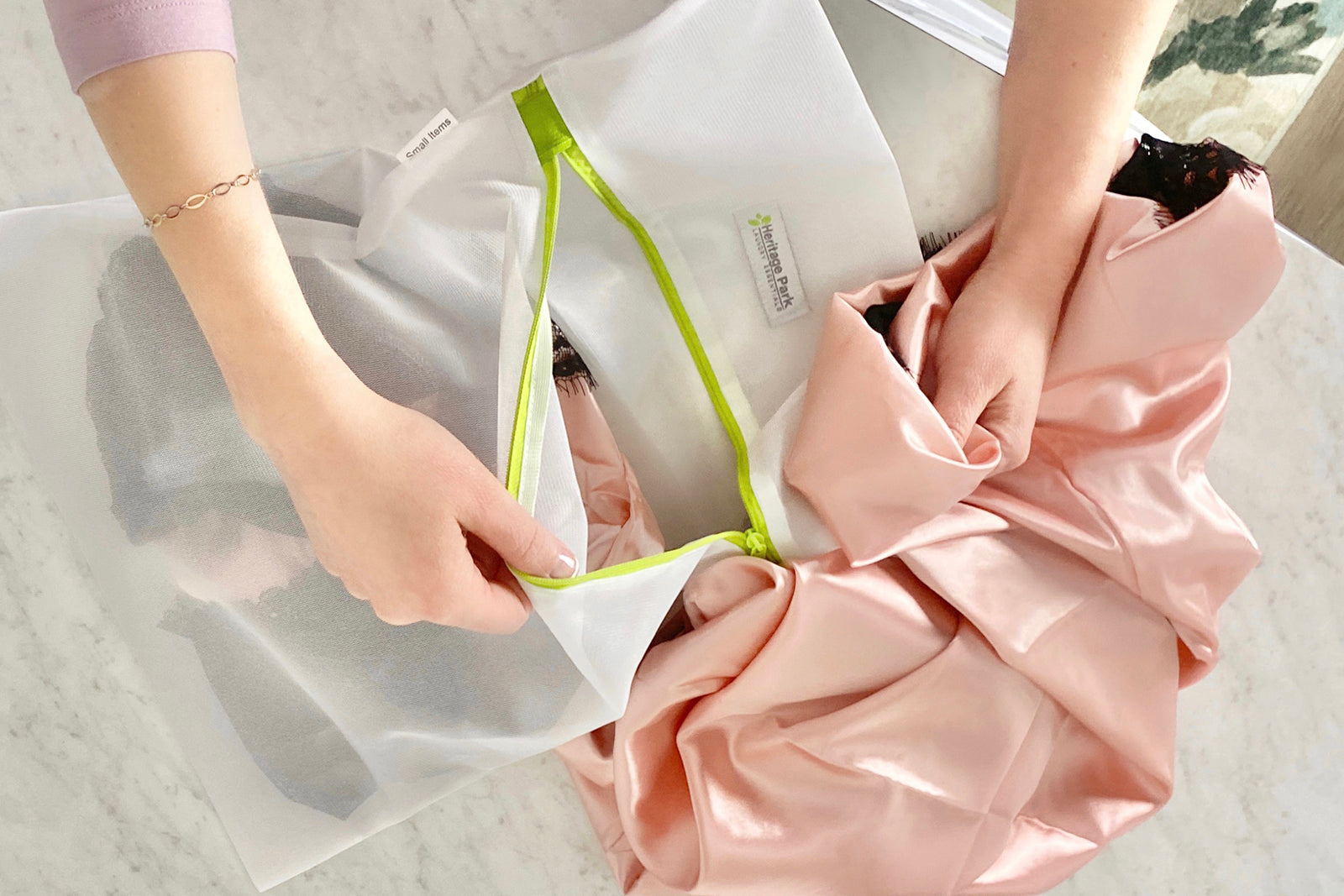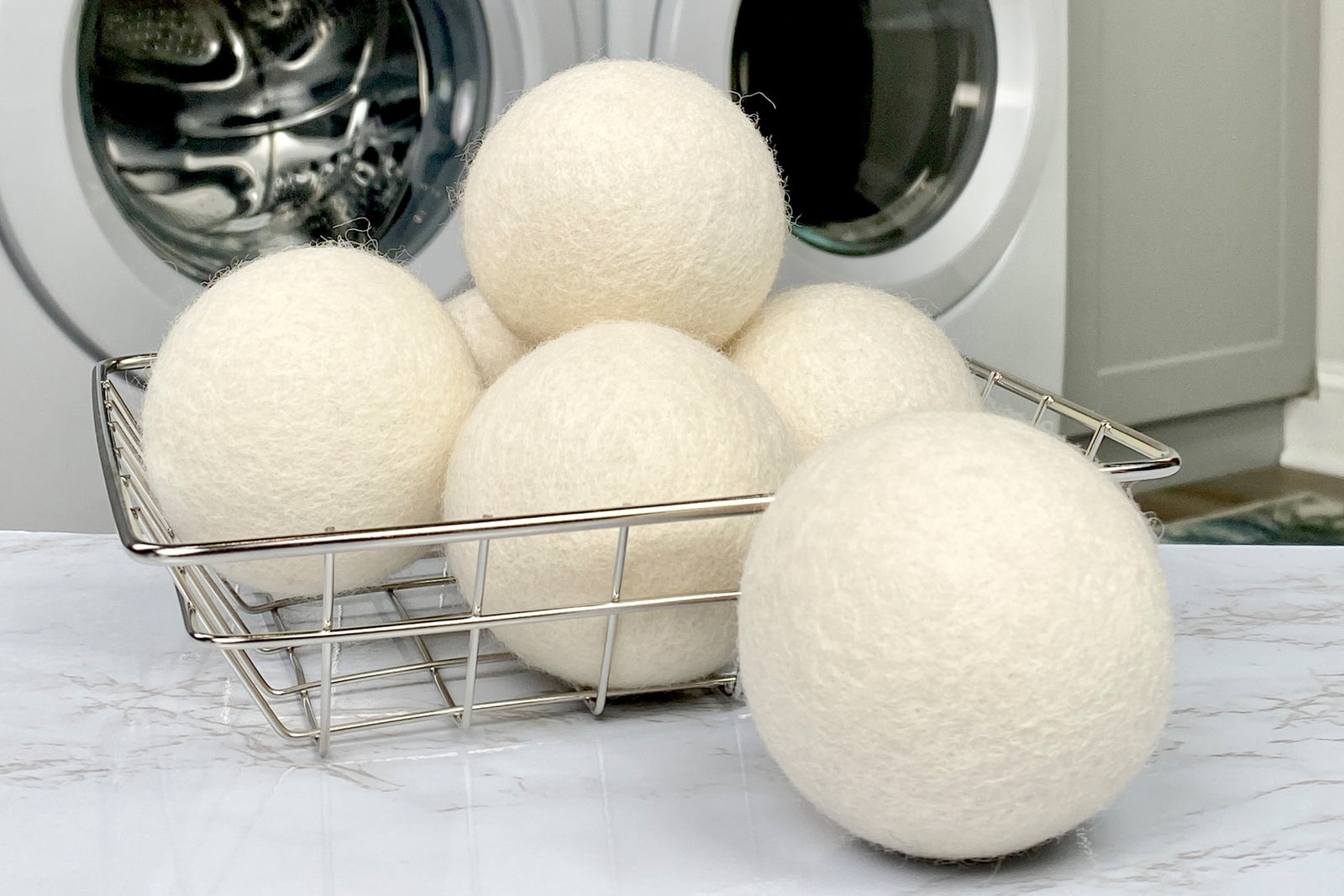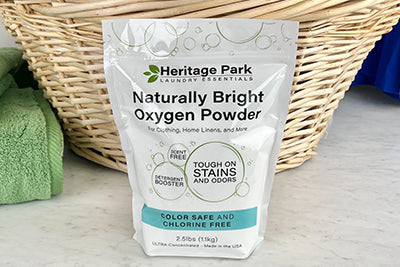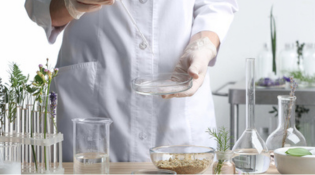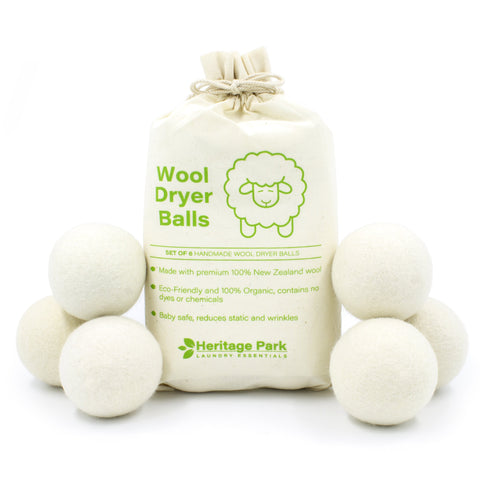Hard water -- which has a high mineral content -- can damage your laundry, especially bath towels. This article explains how to prevent hard water; offers tips for reversing the effects of hard water; and clarifies how the right laundry detergent can minimize hard water damage.
Inside this Article:
- What Causes Hard Water?
- How Hard Water Damages Your Laundry
- How to Address Hard Water in Your Home
- Choose the Best Detergent for Hard Water: Heritage Park All-Purpose Laundry Detergent
- How to Wash Your Cloth to Minimize Hard Water Damage
- How to Revive and Refresh Your Hard-Water Damaged Towels
- About Heritage Park Laundry Essentials
Hard tap water, which is high in minerals such as calcium and magnesium, is a common problem in the United States. In fact, nearly 85 percent of US homes have some degree of hard water. Hard tap drinking water is generally safe to consume. However, it causes mineral build-up in pipes and appliances that reduces their efficiency and longevity; leaves stains and scale on dishes, glassware, and fixtures; irritates skin and dries out hair; and raises energy bills because the mineral content in hard water means it takes longer to heat.
Hard water can also reduces the effectiveness of some laundry detergents, making it more difficult to get your wash clean. It also causes build-up that dulls and damages laundry, especially bath towels. At Heritage Park Laundry Essentials, we care about cleaning and protecting your clothing and home linen. And that means minimize the damage caused by hard water. Read on to learn more about this common problem and what you can do to protect your laundry.
What Causes Hard Water?
The reason hard water is so very common is that it is loaded with minerals -- particularly calcium and magnesium -- that are naturally present in the Earth’s soil. As rainwater falls and seeps into the ground, it picks up these minerals and they become part of the water supply. When this mineral-heavy water comes into your home, the deposits can build up on pipes, plumbing, appliances, dishes, laundry, and even your body!
Some signs that you may have hard water are feeling a "film" on your hands and skin after washing; spots on your glasses and flatware coming out of the dishwasher; and mineral stains in the sink or tub. Hard water causes soap to lather less, leaves hard water stains or a white residue on surfaces, and generally feels "hard" or "heavy." Hard water can also irritate sensitive skin. You can contact your local water supplier or municipality for a water report for your region, or perform a home test. If you have well water you are likely already softening it but check with your maintenance company for testing and details.
How Hard Water Damages Your Laundry
Hard water laundry problems include your towels, sheets, and clothing looking dingy and dull; feeling scratchy; and developing a rough texture. In the case of bath towels, hard water also makes them lose their softness and absorbency. Again, this is due to the build-up of minerals -- specifically calcium and magnesium -- on the fabric. Over time, hard water can actually cause textile fibers to weaken and break down.
Hard water also makes it difficult for detergent to properly dissolve and work effectively to clean your laundry. This is exacerbated by the fact that most commercial laundry detergents are slightly higher on the pH scale to begin with, which makes them harder to lather and rinse in hard water. In extreme cases, hard water can even leave mineral deposits and stains behind on laundry.
How to Address Hard Water in Your Home
There are a few options for treating the hard water problem in your home.
Install a whole-home water softener to remove minerals from the water as it enters your home. Water softeners use a process called ion exchange to swap the calcium and magnesium ions for sodium or potassium ions. This reduces the hardness of the water and prevents hard water minerals from building up in your plumbing system and on home textiles. Some states -- including Arizona, California, Connecticut, Michigan, and Texas -- have placed restrictions on this type of home water softening systems
Install a salt-free descaling system. This device doesn’t directly remove minerals from the water. Instead, a descaling system uses electromagnetic waves to alter the structure of the minerals in the water to prevent them from adhering to surfaces. While this type of water treatment is more environmentally friendly, descalers are generally not as effective as traditional water-softening systems.
Lower your hot water heater temperature to slow the speed of scale-building chemical reactions. This won’t fix water hardness, but it will slow down the build-up of dissolved minerals.
Choose the Best Detergent for Hard Water: Heritage Park All-Purpose Laundry Detergent
With its high mineral content, hard water is already high in pH levels. Unfortunately, most commercial detergents are also made to a slightly high pH level. To counteract the damaging effects of hard water, you want to choose a detergent formulated with a neutral pH like Heritage Park All-Purpose Laundry Detergent. This concentrated, pH-neutral detergent is made to effectively clean and care for your laundry while protecting even the most delicate clothing and home linen.
Heritage Park All Purpose Laundry Detergent contains powerful, plant-based ingredients, including a proprietary blend of cleaning enzymes to target stains. Check out our ingredient list here and learn more about how enzymes can deep clean your laundry. Heritage Park is also formulated to minimize hard-water damage:
- It contains a natural water conditioner: sodium citrate. This "sour salt," which is also found in citrus fruits, naturally softens water and balances pH-levels. You can learn more about sodium citrate here.
- The surfactants (cleaning agents) used in Heritage Park products are non-ionic; they do not have an electrical charge and are not attracted to the metals in hard water. This means the mineral ions in hard water don’t affect their cleaning power or cause them to leave a film behind.
How to Wash Your Cloth to Minimize Hard Water Damage
Follow these 7 best practice steps to minimize hard water damage and buildup when washing your clothes:
- Sort your laundry by color and weight. This means towels get washed together; denim and heavy items together; delicate items together; and so on.
- Don’t overload your washing machine or use too much detergent.*
- NEVER use chlorine bleach, which will cause colored towels to fade and white towels to turn yellow.
- NEVER use fabric softener (or any type of dryer sheet). Rather than "softening" the fabric, these products are loaded with chemicals that leave a waxy build-up on the surface of fabric. This diminishes the absorbency of bath towels and the flame-retardant properties of baby and child sleepwear. Learn more about why you should skip the fabric softener and dryer sheets here.
- In general, wash in lukewarm or cool water.
- Shake laundry to fluff before putting it in the dryer on a medium setting.
- Use wool dryer balls like these to soften and speed drying time.
*Note: if your water is soft or softened, you do not need to use extra detergent; normal measurements per the Heritage Park instructions will work perfectly.
How to Revive and Refresh Your Hard-Water Damaged Towels
As we noted above, bath towels are particularly susceptible to hard water damage. If you've been washing your towels in hard water for a while and notice they are stiff, scratchy, or maybe even smelly, don’t worry! You can restore softness and absorbency to your favorite bath linen by removing hard water build up with distilled vinegar and baking soda.
The process requires two complete washing cycles but it will strip away the residue from your towels, remove the any musty smells; and leave your towels soft, fluffy, and smelling fresh.
STEP ONE: Wash your towels in hot/warm water (not scalding) with one cup of distilled white vinegar.
STEP TWO: Run a second time with only a half-cup of baking soda. This will help freshen and remove any musty smells.
It’s that easy! Don’t add laundry detergent to either wash.

As always, feel free to contact the "clean team" here at Heritage Park Laundry Essentials with any questions or concerns about hard water build-up or doing laundry in general. We are here to help!
About Heritage Park Laundry Essentials
At Heritage Park, caring for fine fabric is our passion. As lifelong collectors of luxury sheets, towels, and cloths, we found many commercially available "gentle detergents" either damaged our fabrics or didn't get the job done, leaving stains. We knew we could do better. So we developed a formula with the perfect balance of powerful -- yet safe -- ingredients designed to remove tough, set-in stains while remaining gentle on luxury linens. Please connect with us at (800) 977-1841 or visit our store or email us with any product feedback or cleaning questions.


